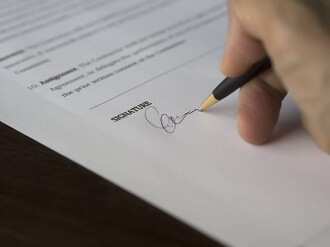Challenging a Will: Fraudulent Calumny Decision Tested and Upheld in the High Court
Challenging a Will: Fraudulent Calumny Decision Tested and Upheld in the High Court
 The majority of challenges to the validity of a will arise from an assertion that the deceased did not have the required mental capacity to make the will, that they lacked knowledge and approval of the contents of the will, that the will itself is a forgery or that the legal formalities were not complied with when the will was made, thus rendering it invalid.
The majority of challenges to the validity of a will arise from an assertion that the deceased did not have the required mental capacity to make the will, that they lacked knowledge and approval of the contents of the will, that the will itself is a forgery or that the legal formalities were not complied with when the will was made, thus rendering it invalid.
An additional ground on which the validity of a will may be challenged is on the basis of undue influence. These claims are notoriously difficult to run and, fundamentally, to prove, in light of the fact that the primary witness is now deceased.
A final, and even more difficult claim to establish, and one which is similar to undue influence as it is also fraudulent in nature, is a claim of ‘fraudulent calumny’. This formed the basis of a decision in the Central London County Court this year in the case of Marcou -v- Christodoulides, when it was held that a will had been procured by fraudulent calumny and was therefore found to be invalid. Permission to appeal the decision was recently dismissed in the High Court by the Honourable Mr Justice Morgan who helpfully clarified the legal test for fraudulent calumny in relation to a will.
What is Fradulent Calumny?
Fraudulent calumny is a specific type of fraud where a party dishonestly ‘poisons the mind’ of the will maker by making fraudulent misrepresentations about another person who would ordinarily benefit from the estate of the will maker. The legal principles are summarised in the case of Re Edwards, with the basic idea being that:
“…if A poisons the testator’s mind against B, who would otherwise be a natural beneficiary of the testator’s bounty, by casting dishonest aspersions on his character, then the will is liable to be set aside.“
Although fraudulent calumny is similar to undue influence, it does not involve threats or pressure being placed on the testator to induce them to make a will in a certain way. It is more that the comments made, the fraudulent misrepresentations, lead the will maker to a mistaken belief that encourages them to make a will in terms which do not benefit the maligned party.
The case of Marcou -v- Christodoulides
The deceased, Agni Lacovou (“Agni”) made a will a few days before her death leaving her estate to one of her two daughters, Niki Christodoulides (“Niki”). It was found that Niki had led her mother to believe that her sister, Androulla Marcou (“Andre”), had “helped herself to a substantial amount of assets already and Niki had not“. As a result of this, Agni believed and intended that excluding Andre from her will would result in there being a more even distribution of assets between her daughters.
It was found that fraudulent calumny had induced Agni to make such a will and as a result, the will was found to be invalid.
How can fraudulent calumny be proved?
Morgan J, in his High Court judgment dismissing Niki’s appeal, applied the relevant principles identified in Re Edwards. In order to successfully bring a plea of fraudulent calumny against Party A, Party B must demonstrate:
- that Party A made a false representation;
- to the deceased;
- about Party B’s character;
- for the purpose of inducing the deceased to alter their will;
- that Party A made such a representation knowing it to be untrue or being reckless as to its truth; and,
- that the will was only made or altered because of the false representation.
The person who is alleged to have made the false misrepresentations to poison the mind of the will maker must either know that what they are saying is untrue or not care whether what they are saying is true or false. This demonstrates that in circumstances where a person says something to a testator that they believe to be true, the will cannot be set aside solely on the basis of fraudulent calumny. There can also be no other reason for the disinheritance – it cannot have happened for any other reason than because of the false statements made.
It is unusual to be able to successfully challenge the validity of a will on the basis of fraudulent calumny, simply because it is rare to have the evidence to actually prove it. As with all claims of fraud, including undue influence, the burden of proof is incredibly high. In circumstances where there are concerns about the validity of a will, there are usually other grounds on which a challenge could potentially be brought which are more likely to be successful and/or through which it may be possible for further evidence to be obtained.
Contact our wills, trusts and probate experts today
If you still haven’t finalised your last wishes or would like to write a new will, contest a will, want to leave money in trust for a young relative, or are struggling with probate issues, please call us on 03456 381381. Alternatively, email us at estatemanagement@ibblaw.co.uk.
